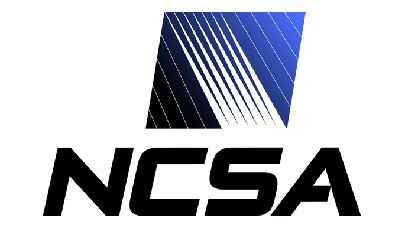
Three Universities Team for NSF-Funded ‘ACES’ Reconfigurable Supercomputer Prototype
September 23, 2021
As Moore’s law slows, HPC developers are increasingly looking for speed gains in specialized code and specialized hardware – but this specialization, in turn, can make testing and deploying code trickier than ever. Now, researchers from Texas A&M University, the University of Illinois at Urbana... Read more…

Azure Scaled to Record 86,400 Cores for Molecular Dynamics
November 20, 2020
A new record for HPC scaling on the public cloud has been achieved on Microsoft Azure. Led by Dr. Jer-Ming Chia, the cloud provider partnered with the Beckman I Read more…

NCSA Wades into Post-Blue Waters Era with Delta Supercomputer
June 3, 2020
NSF has awarded the National Center for Supercomputing Applications (NCSA) $10 million for its next supercomputer - named Delta – “which will kick-start NCS Read more…

Larry Smarr Helps NCSA Celebrate 30th Anniversary
September 20, 2016
Throughout the past year, the National Center for Supercomputing Applications has been celebrating its 30th anniversary. On Friday, Larry Smarr, whose unsolicited 1983 proposal to the National Science Foundation (NSF) begat NCSA in 1985 and helped spur NSF to create not one but five national centers for supercomputing, gave a celebratory talk at NCSA. Read more…

Research Described at XSEDE13 Promises Fast Analysis of Markets
August 7, 2013
Thanks to a number of high-performance computing resources in the NSF’s XSEDE network, research by investigators at Cornell University and the University of Illinois at Urbana-Champaign is profoundly changing how regulatory authorities and researchers monitor the major U.S. stock exchanges. Read more…

International Project Readies Climate Models For Exascale Era
May 12, 2011
The first international effort to bring climate simulation software onto the next-generation exascale platforms got underway earlier this spring. The project, named Enabling Climate Simulation (ECS) at Extreme Scale, is being funded by the G8 Research Councils Initiative on Multilateral Research and brings together some of the heavy-weight organizations in climate research and computer science, not to mention some of the top supercomputers on the planet. Read more…

- Click Here for More Headlines

Whitepaper
Transforming Industrial and Automotive Manufacturing
In this era, expansion in digital infrastructure capacity is inevitable. Parallel to this, climate change consciousness is also rising, making sustainability a mandatory part of the organization’s functioning. As computing workloads such as AI and HPC continue to surge, so does the energy consumption, posing environmental woes. IT departments within organizations have a crucial role in combating this challenge. They can significantly drive sustainable practices by influencing newer technologies and process adoption that aid in mitigating the effects of climate change.
While buying more sustainable IT solutions is an option, partnering with IT solutions providers, such and Lenovo and Intel, who are committed to sustainability and aiding customers in executing sustainability strategies is likely to be more impactful.
Learn how Lenovo and Intel, through their partnership, are strongly positioned to address this need with their innovations driving energy efficiency and environmental stewardship.
Download Now
Sponsored by Lenovo
Whitepaper
How Direct Liquid Cooling Improves Data Center Energy Efficiency
Data centers are experiencing increasing power consumption, space constraints and cooling demands due to the unprecedented computing power required by today’s chips and servers. HVAC cooling systems consume approximately 40% of a data center’s electricity. These systems traditionally use air conditioning, air handling and fans to cool the data center facility and IT equipment, ultimately resulting in high energy consumption and high carbon emissions. Data centers are moving to direct liquid cooled (DLC) systems to improve cooling efficiency thus lowering their PUE, operating expenses (OPEX) and carbon footprint.
This paper describes how CoolIT Systems (CoolIT) meets the need for improved energy efficiency in data centers and includes case studies that show how CoolIT’s DLC solutions improve energy efficiency, increase rack density, lower OPEX, and enable sustainability programs. CoolIT is the global market and innovation leader in scalable DLC solutions for the world’s most demanding computing environments. CoolIT’s end-to-end solutions meet the rising demand in cooling and the rising demand for energy efficiency.
Download Now
Sponsored by CoolIT
Advanced Scale Career Development & Workforce Enhancement Center
Featured Advanced Scale Jobs:
HPCwire Resource Library
HPCwire Product Showcase
© 2024 HPCwire. All Rights Reserved. A Tabor Communications Publication
HPCwire is a registered trademark of Tabor Communications, Inc. Use of this site is governed by our Terms of Use and Privacy Policy.
Reproduction in whole or in part in any form or medium without express written permission of Tabor Communications, Inc. is prohibited.
























